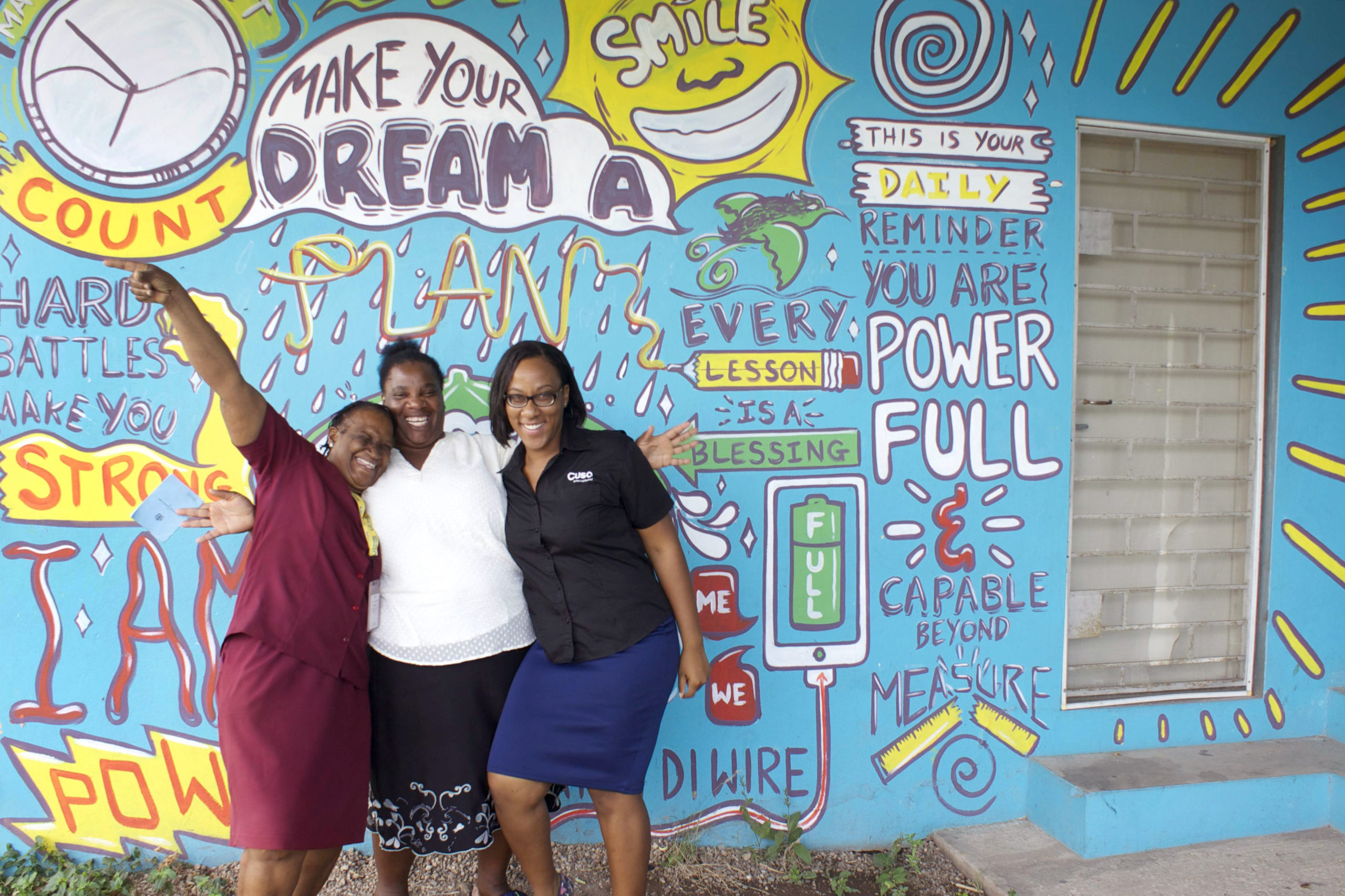Diaspora Volunteer Helps Transform Young Women’s Organization
Story

Amalia Gentles felt deeply drawn to her mother’s home country. “I always knew I would live and work in Jamaica. There was something about it that felt like home.”
Canadian by birth, Amalia was seven when she and her sister spent their first summer on their grandparent’s farm in Hanover, a rural parish in western Jamaica. “We expected sun, sand and beaches,” Amalia recalls with a laugh. And while they got that, the two Ottawa girls experienced a taste of Jamaican childhood, as they learned to hand wash their own clothes outside and help on the small family farm.
During her teens, Amalia returned several times and witnessed some of the harsh social and economic realities that existed alongside Jamaica’s paradise. High public debt, unemployment, and violence are major challenges, as approximately 15% of the population lives in poverty. Reflecting on the walks she took in Jamaica as a child, she notes: “We would see young men just hanging out every day. When I got older I made the connection and realized there was high youth unemployment in my grandparent’s community”.
While completing her Master of Arts degree in global development studies at Queen’s University, she critically analyzed neoliberal approaches to poverty reduction and explored the effectiveness of parenting interventions in Jamaica. It was her thesis supervisor who encouraged her to volunteer with Cuso International after graduating. In October 2015, she began to support the Young Women’s Christian Association (YWCA) in Kingston.
The YWCA is a 90-year-old organization that offers vocational skills training and educational opportunities to young women from underserved communities, including teenage mothers. There, Amalia facilitated organizational development activities that included strategic planning, leadership and change management workshops. Together with Cuso International volunteer Christine French, she organized mindfulness training that teachers and staff could use to alleviate disruptive behaviours in the classroom – an issue for some students. “I can understand it. Learning in a hot classroom when you may not have had a meal that day…It’s easy to fly off the handle.”
Amalia also supported Cuso International volunteer Tess Page in the organization of a mural project- visible from the street, the artwork contains positive and relevant messages about social change, confidence and self-esteem. Her largest contribution, however, was the design of a two-year strategic plan called “Seeds of Change”. The plan identified goals in the areas of capacity-building, resource mobilization and community engagement. Pivotal was a high-profile launch of the plan that included a public tour of the facility and guests such as the Canadian High Commissioner.
Roberta Ellis, Cuso International’s program manager in Jamaica, says the plan gave the YWCA strategic direction and led to focused board meetings. She felt Amalia built relationships easily and maintained realistic expectations. “She was really appreciated by her partner. They felt they could relate to her.”
After the YWCA’s launch event, Sonita Abrahams, the Executive Director of RISE Life Management Services, invited Amalia to support their organization when the YWCA placement ended. RISE is a longstanding civil society organization that implements projects in the areas of human rights, substance abuse prevention and counselling. There, Amalia developed succession planning materials such as formal job descriptions and a revised employee orientation manual. “Non-profit organizations know they need these materials but don’t always have the time or resources to do it,” she explains.
After several months and over two years in Jamaica, Amalia headed back to Canada. Though excited for the next stage in her career, she admits she feels like her heart “is in two places.” During her placement, she got to know family in Kingston and spend a lot of time with her grandparents.
She says she may volunteer again and has obtained dual citizenship. “I was so excited when I got the papers in the mail,” she recalls. At the very least, she looks forward to regular visits. “I know I won’t need to pay for accommodation in Kingston. I will tell my cousins to make room for me!”